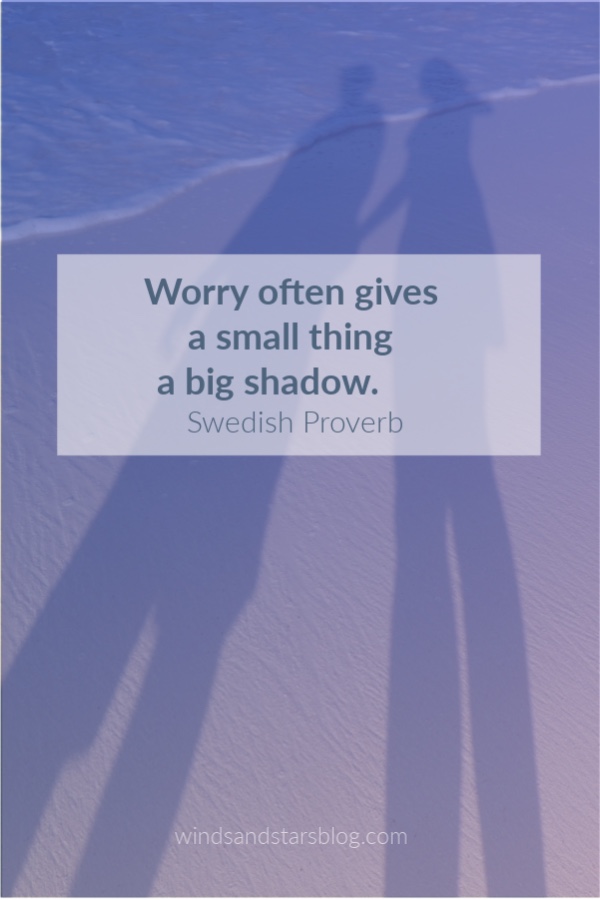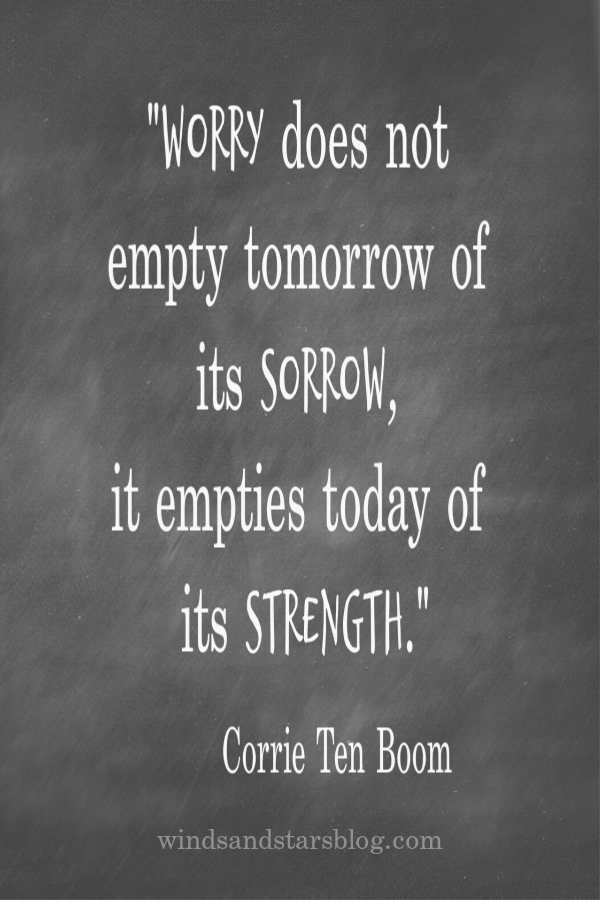Have you noticed?
The things we worry about jump out at random times.
I didn’t ever think I’d be mistaken for a dog. Well I may have been called a certain name associated with dogs. But only rarely. And I probably . . . Hold on. I’m off-track. Again.
Back to my story.
While out for a walk one day, I caught up to the person in front of me. As I drew close, she jumped, spun around and said, “Oh! I thought you were a dog”.
A dog? When I walk in the woods and hear something behind me, I think bear. Or cougar. Or axe murderer. Not dog. I’m happy if it’s a dog.
I carried on my way musing over what seemed to me a strange reaction.
But then maybe she’d never been chased by a bear. Or watched a scary movie. Or read about the cowboy dragged off his horse by a cougar. Maybe she’d been chased by a dog.
Or… Maybe it was none of the above.
Maybe she was making a commentary about me. My brain veered to this new line of thought.
Was it my hat? Or my coat? I was wearing a fleece anorak. Did it make me look like a dog? When did she make the association. Before or after she saw me? Do I sound like I have four feet? Or worse. Was I panting?
Then my thoughts turned back to how little it takes to worry.
This isn’t the first post where I’ve addressed worry. Worry is a response mechanism of the reptilian brain that helps us identify and respond to threats in our environment.
However, this response becomes a problem when it’s never challenged. Our brain becomes sensitized to stimuli and interprets it a threat whether real or not.
In all fairness, even though the walking path is a popular route and the most logical explanation would be another walker, the startle response of the woman is an example of how the fight, flight, or freeze center functions.
In centuries past, this response kept people in a state of awareness that allowed them the best chance of survival should they encounter say a saber toothed tiger.
But some of us go through life like that.
Regardless of where we are. And it becomes a problem when our brain, which is sensitive to physical stimuli like increased heart-rate or respiration, goes unchallenged.
Unless we override the default, the brain interprets the stimuli as danger. We become hyper-vigilant and see potential threats everywhere.
Creeping up unaware, our brain becomes consumed with ‘what ifs’, and the quality of our lives suffer.
Have you seen a dog gnawing at a bone?
That’s what worry is. Constantly gnawing on a unrealized fear. You may leave it buried in the flower bed for a time, but then one day something triggers the memory of it so you dig it back up to chew on.
Turning it over and over in your mind. Picking at it like a dog worrying a bone.
Sometimes worry feels like a productive pastime.
Imagination is, after all, a wonderful thing. If we can use it to anticipate every possible danger, than we can thwart it.
I’ve struggled with this ever since having kids. The compulsion to protect them and keep them safe is powerful. And I mistakenly thought that if I didn’t worry, I wasn’t being a good parent. With hindsight, I’ve learned that unbridled worry is both futile and harmful.
I’ve named it my ‘god’ complex.
Not because I felt god-like, but rather because I thought if I could worry myself into being all-present and all-knowing, I could prevent bad things from happening.
Life, of course, doesn’t work that way and all I succeeded in doing was robbing myself of peace.
The best use of imagination is creativity. The worst use of imagination is worry.
Deepak Chopra
Worry takes a toll on us.
- Misdirected imagination
- Raises cortisol levels
- More susceptible to illness
- Speeds up aging
- Our world shrinks because we become fearful and avoid the unfamiliar
- Impedes joy and wonder
- Robs time
- Impairs focus – unwanted thoughts keep intruding making concentration difficult
My life has been filled with terrible misfortune; most of which never happened.
Michael de Montaigne
85 – 90% of what we worry about never happens. 85 – 90%!
Intuitively we know this. Yet how many of us waste mountains of time worrying about things that never happen.
Or let our worries interfere with our dreams and goals.
How many of you immediately attempted to figure out which 10-15% of your worries will happen? If you did, multiple studies show that of the 10-15% that do happen, most are easily managed.
Expand your world with these 3 strategies
- Learn to identify what’s triggering the worry – sometimes it’s totally unrelated.
I had a small break-through a few weeks back that I hope will help illustrate what I’m talking about.
A schoolmate, who I haven’t talked to in years, posted a public tribute on Facebook to her son who’d died of fentanyl poisoning before Christmas. She also included information to help educate others about fentanyl.
It was a beautiful and brave post.
As I got ready for bed that night, I wasn’t consciously thinking about the post anymore. On a whim, I decided to text one of my daughters and didn’t get a reply. I tried calling. No answer. My brain started to react like a pinball machine.
In the past, I would think that all these feelings were a sign that something was wrong and the worry would quickly escalate.
But this time, I stopped and asked myself what was really going on. At that point, I realized that I was feeling grief for the parent whose son had died.
That grief triggered the default response in my brain and I dug up the worry bone.
Naming the source helped calm my brain.
It now recognized it as sadness rather than worry. And the calm was almost immediate.
This isn’t about becoming emotionless. My sadness was real. There was a reason for it and it was an appropriate response to the situation I’d read about. However, the worry cycle was unfounded.
- Our brain is not overly discriminating. It responds to stimuli and not always accurately.
- The great news is we can retrain our brain and help it be less reactive. Mindfulness is a starting point.
2. Mindfulness/Meditation – My brain is much calmer and has greater clarity when I consistently practice mindfulness/meditation.
- It helps create space amid the clatter of thoughts. Not only does it equip you to handle stress better, but it helps train the brain for more restful sleep.
- Whether you call it mindfulness, mindfulness meditation, or meditation, the practice of stilling your thoughts builds resiliency.
- There are many resources, books, apps, videos to help you get started. Some people like guided meditation, others don’t.
- It really is best to try different methods until you find one that works for you.
- The important thing is to develop the practice.
3. The 5 Second Rule by Mel Robbins.
- I’ve written about the 5 Second Rule here.
- While the Robbins uses this rule to overcome procrastination, I have found it most effective for halting rampaging thoughts.
- I simply countdown 5-4-3-2-1- STOP. It gives the brain the signal that it’s misinterpreted the situation and helps calm my thoughts.
Slowly I’m learning to manage my worry. The strategies I listed above are ones that have helped me on my journey. And if you struggle with worry and anxious thoughts, I hope you find something helpful here.
Parenting is a life sentence.
And I say that with tongue-in-cheek because there is no greater joy than parenting. However, no matter their age, what you want for your kids never changes. Always, you want the best for them.
It’s harder as they become adults because your dreams for their happiness remain unchanged, but now you have more to worry about as in-laws and grandchildren are added to the family.
It’s both wonderful and terrifying.
Don’t want to miss out on the joy because of a run-away imagination.
~Priscilla
P.S. This post is about my experience and my learning about anxious thoughts. Worry can be debilitating so please seek professional help if it’s impacting your life in a significantly negative way.

Yes! I want to receive your newsletter.
Simply . . .




